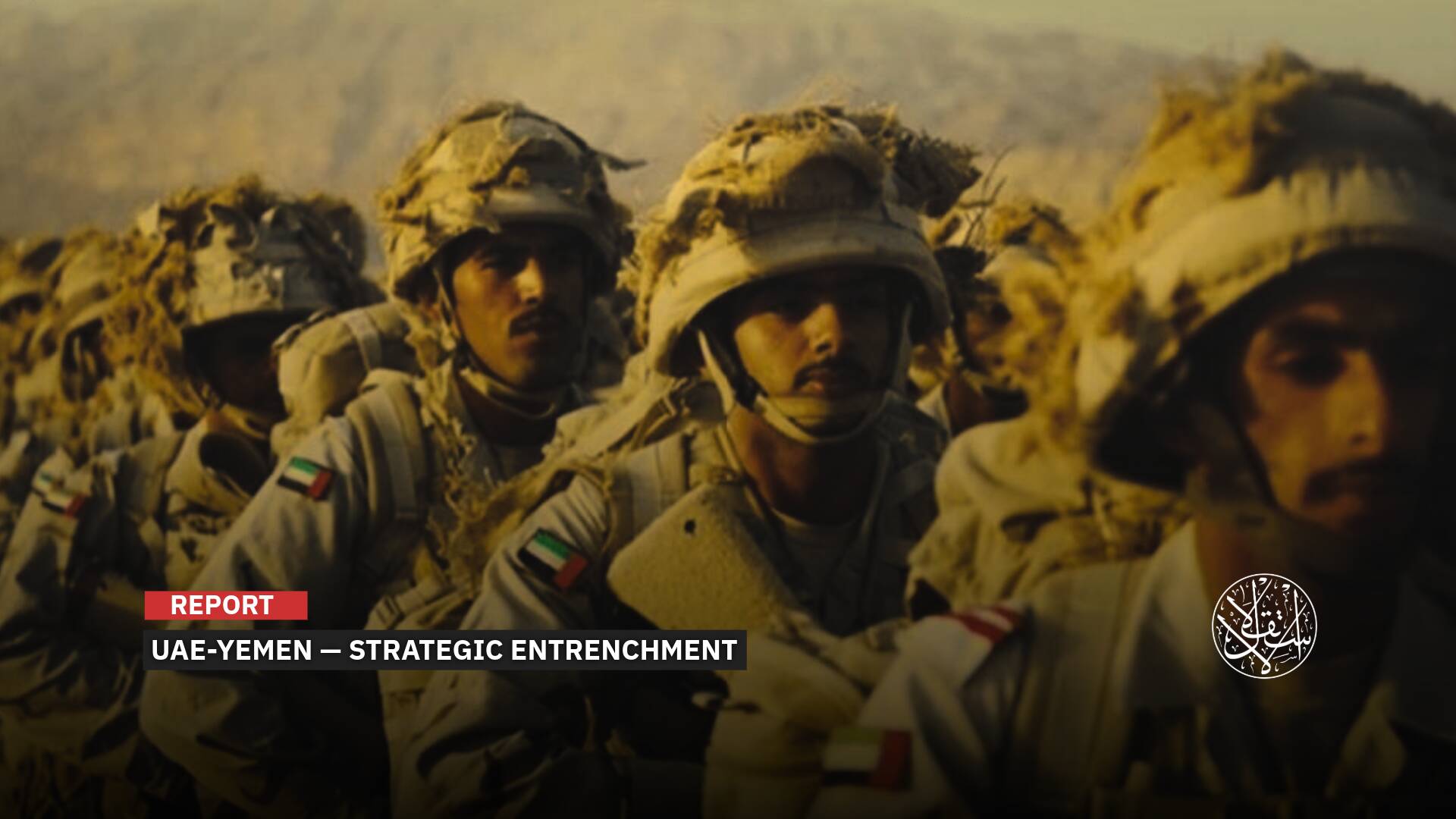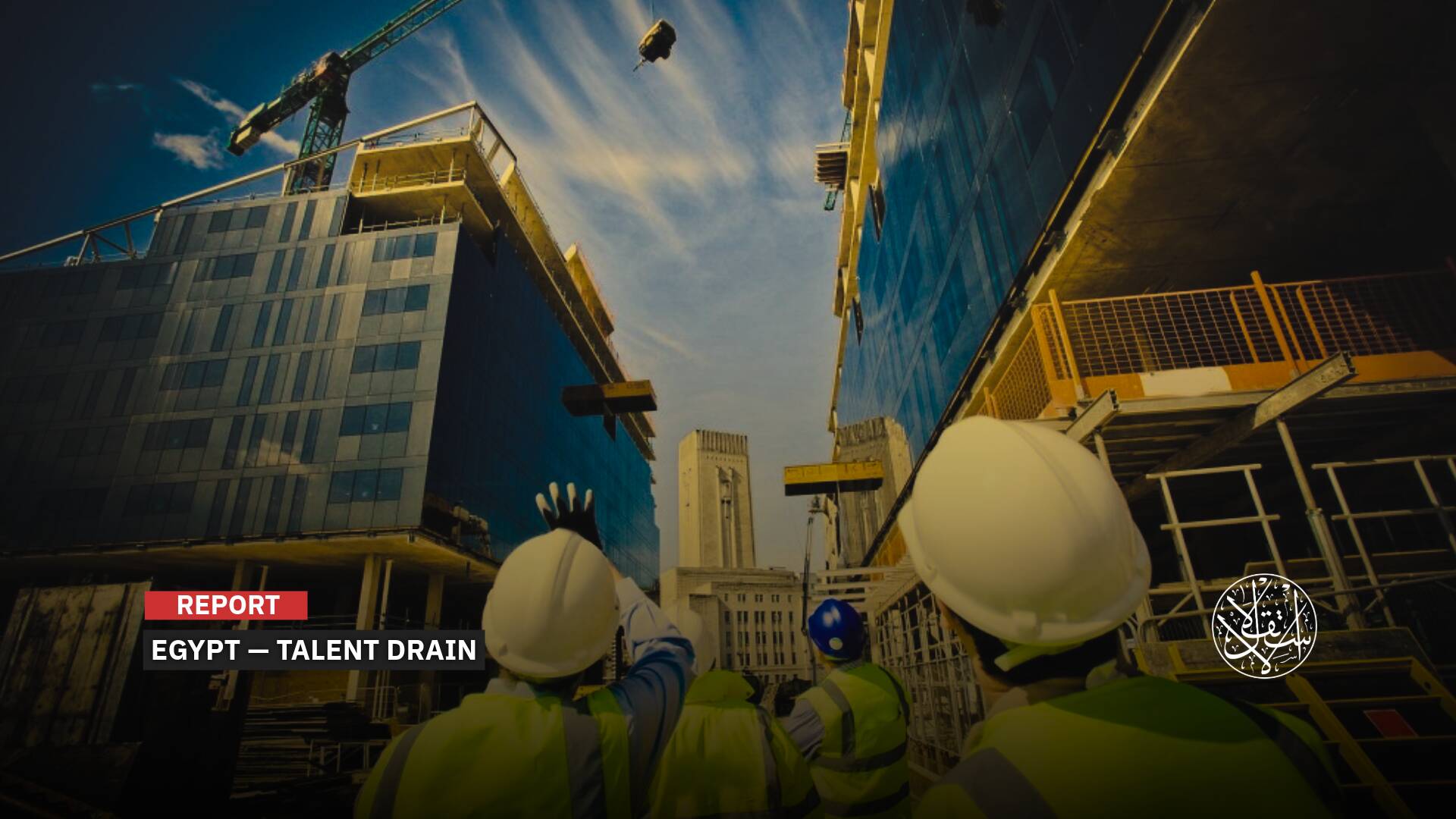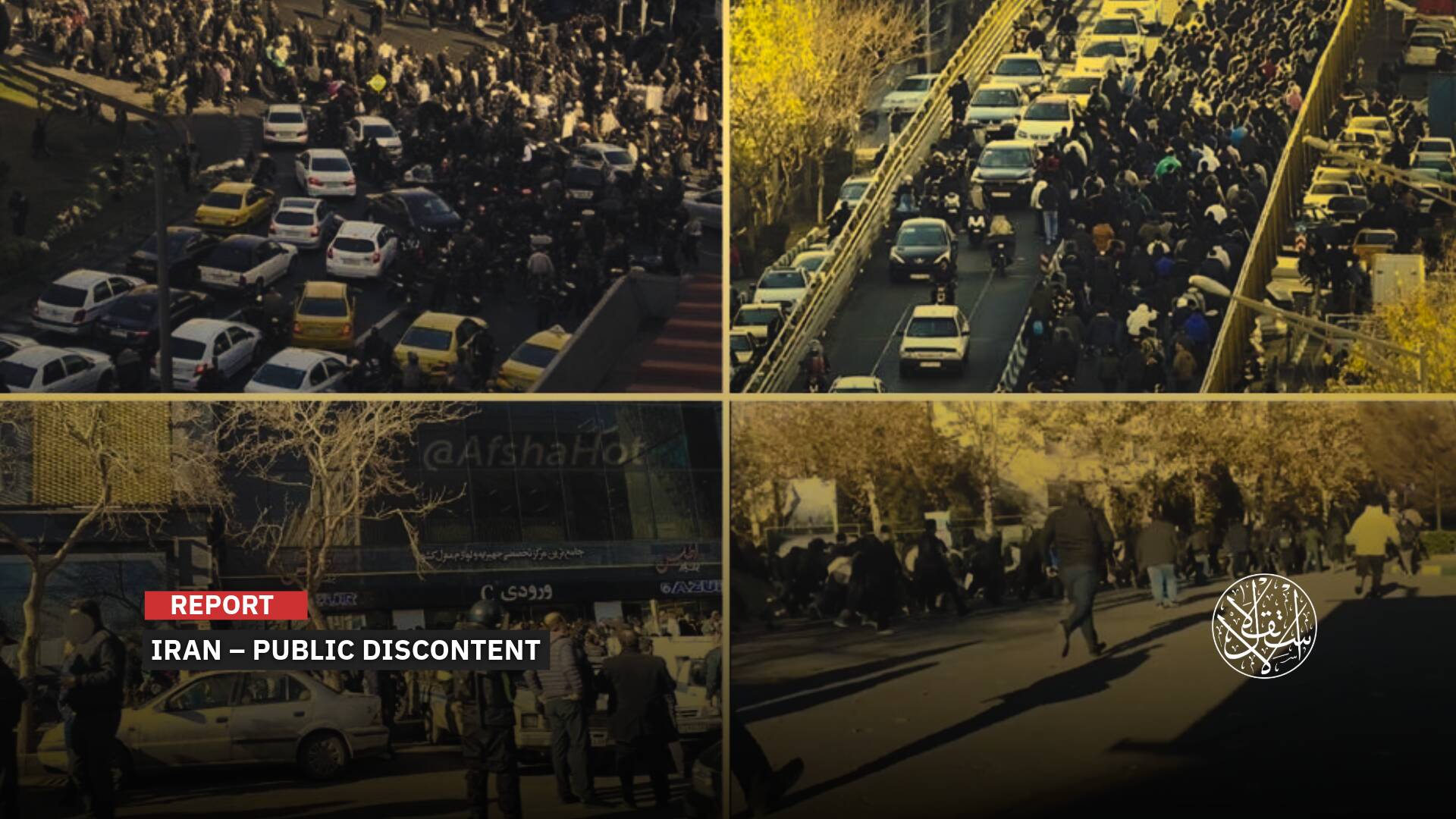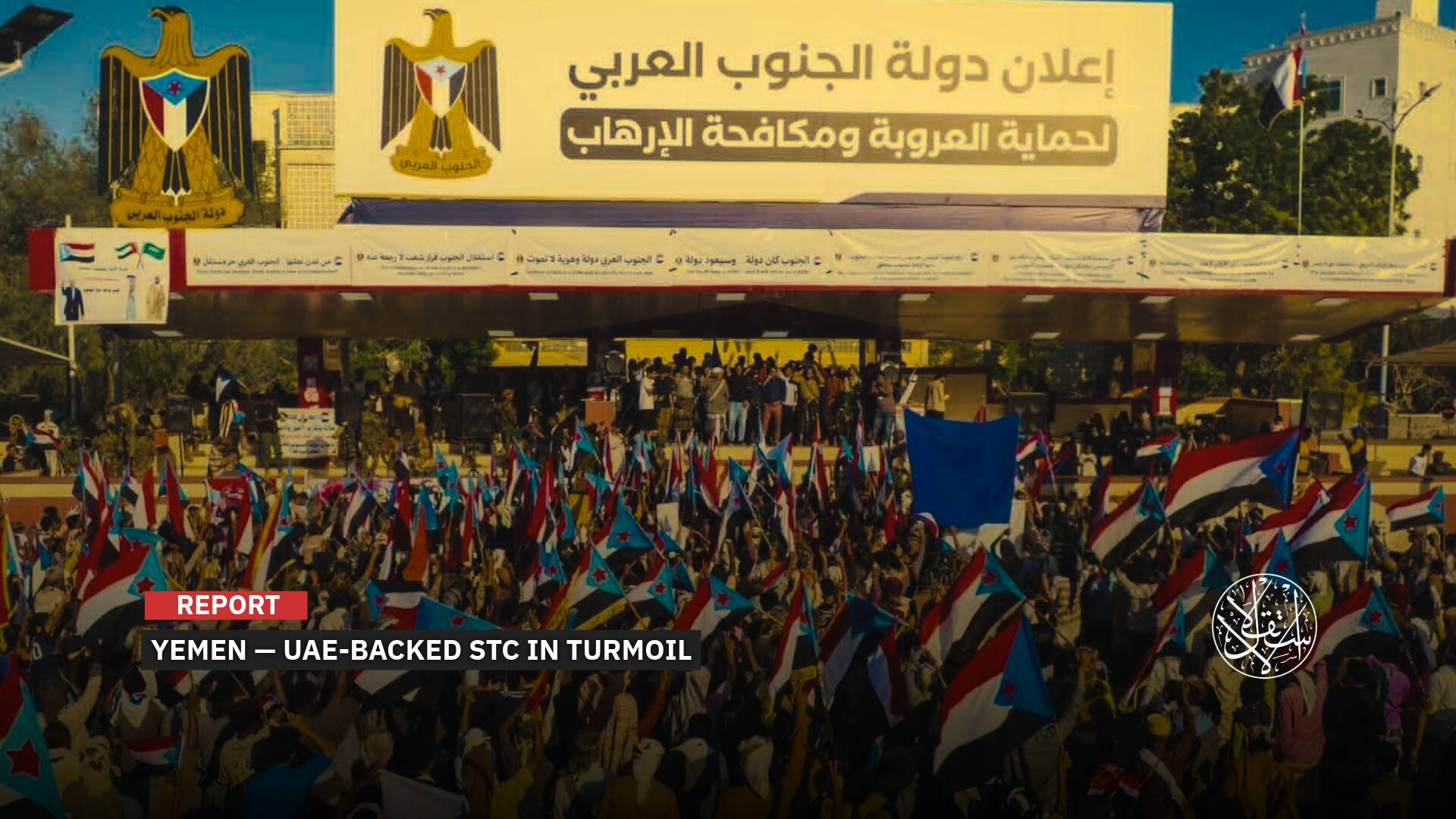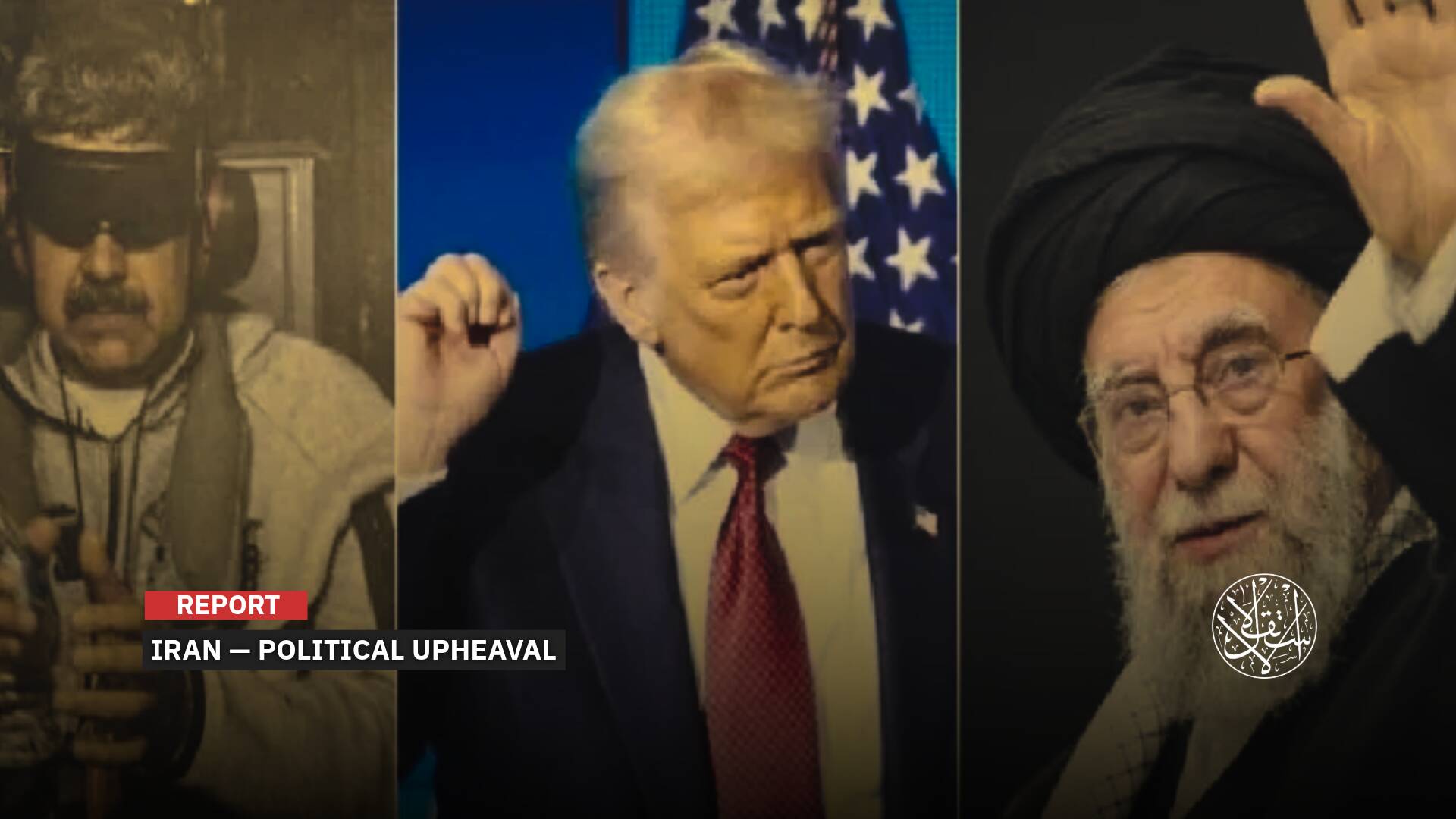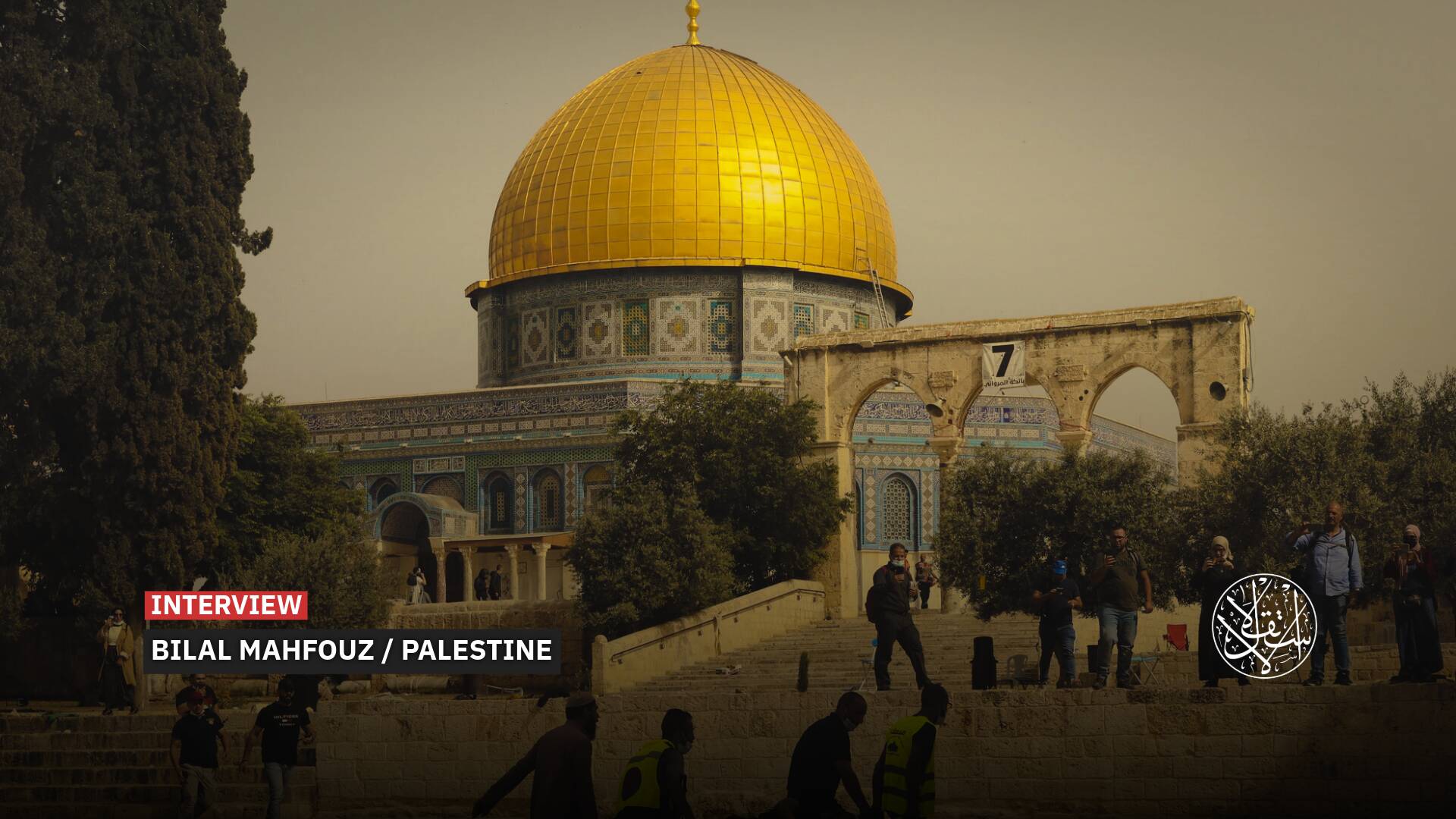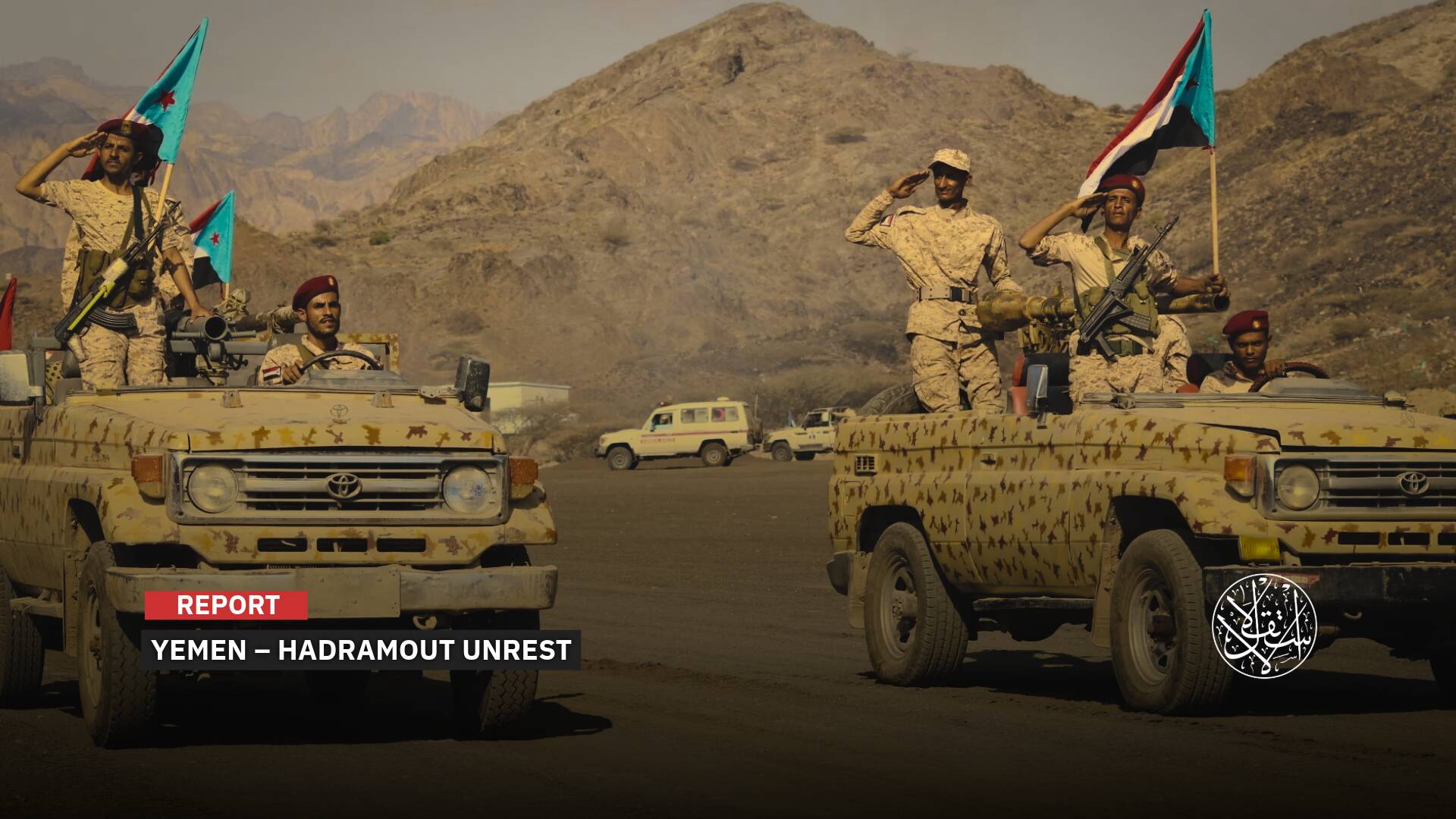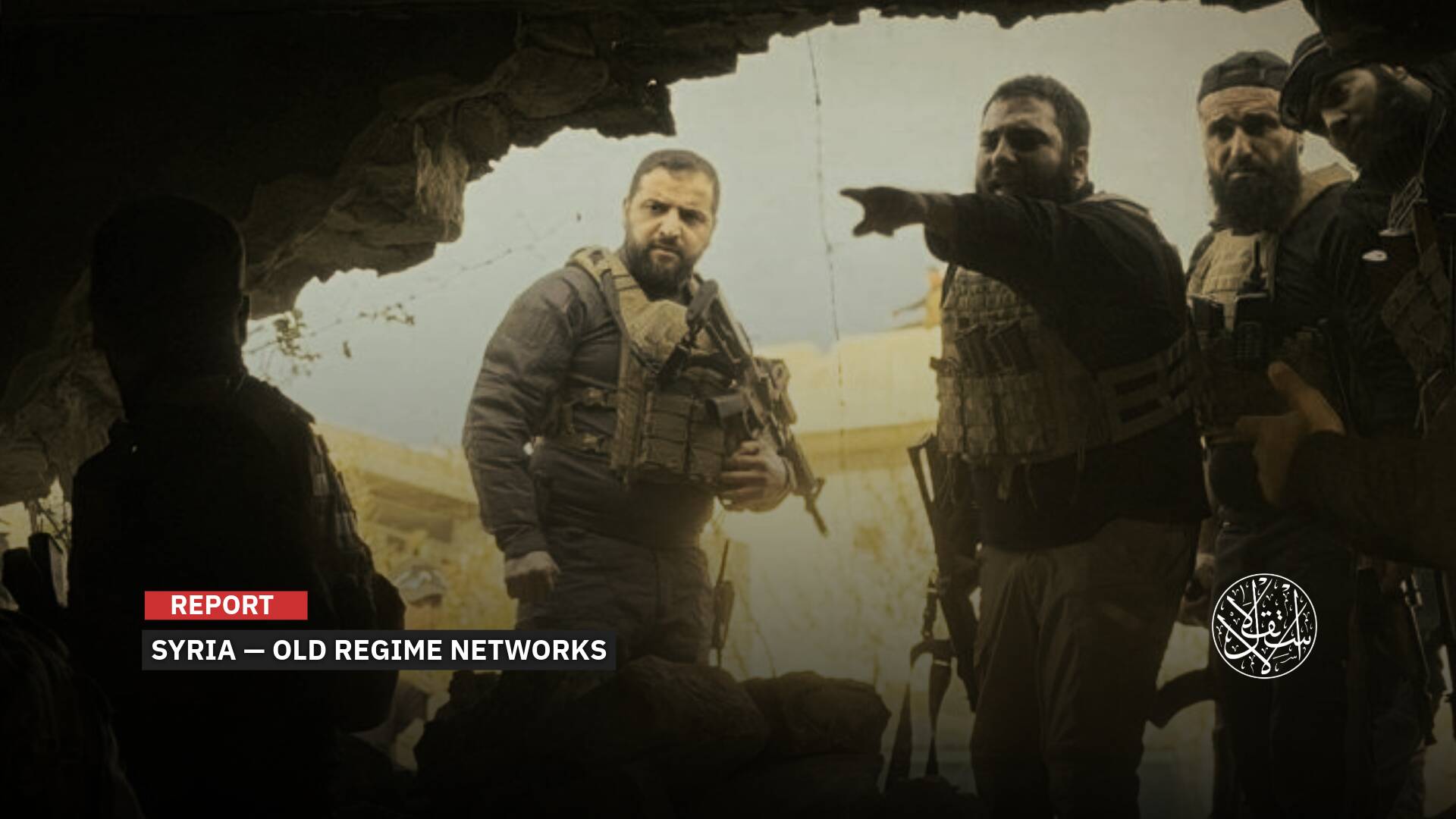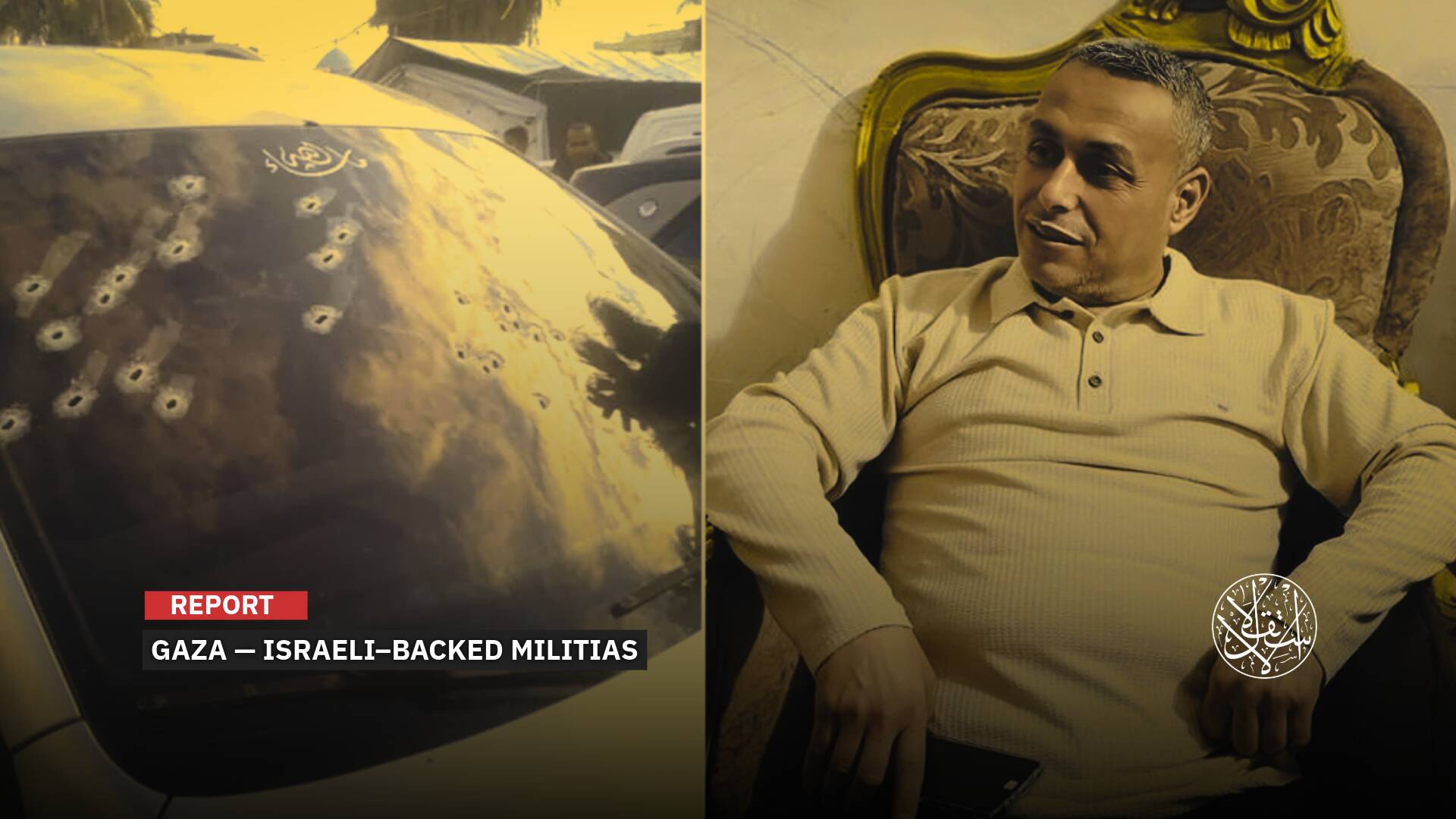After 14 Years Under House Arrest, Mehdi Karroubi Challenges Iran’s ‘Short-Sighted’ Supreme Leader
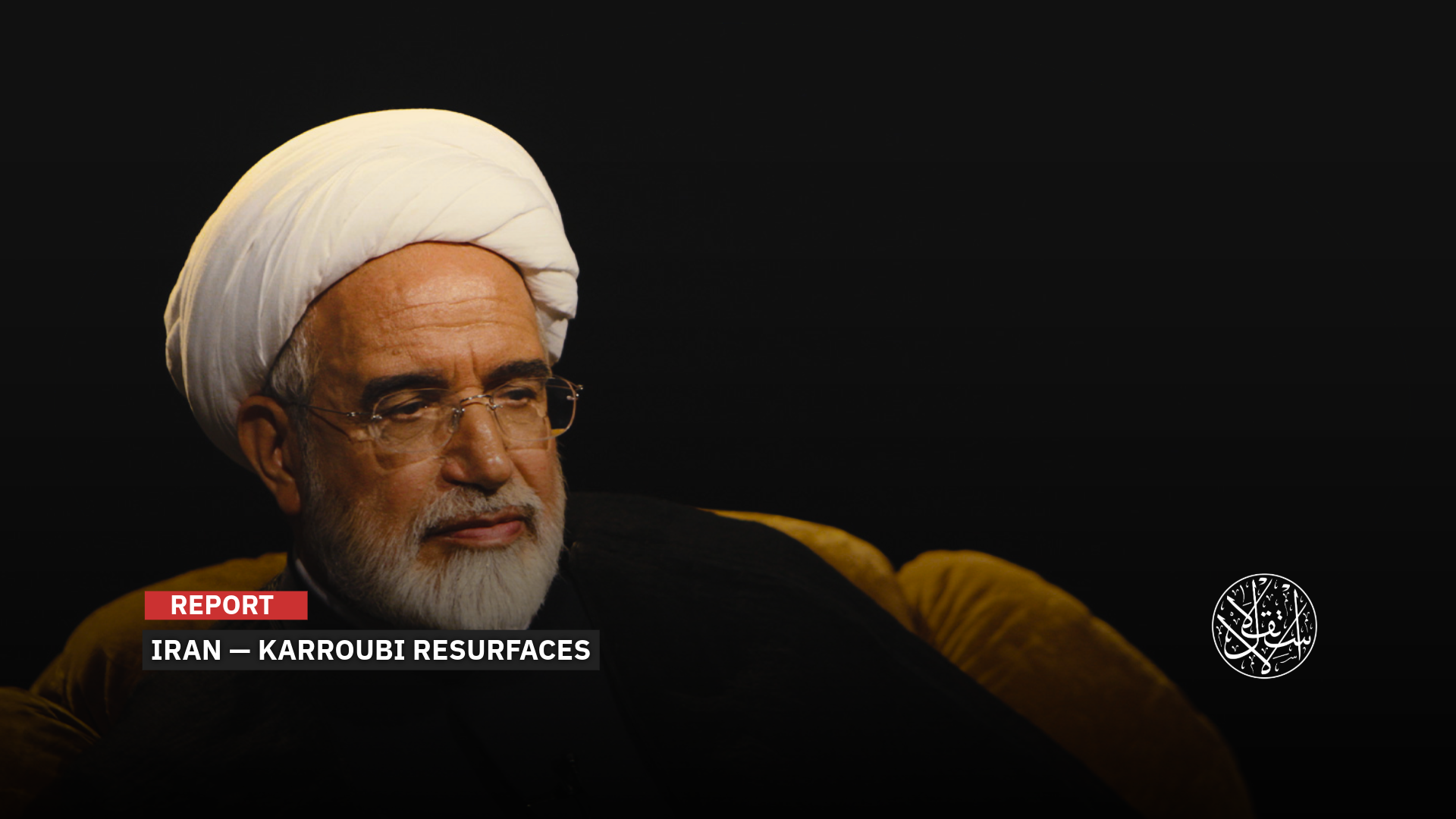
Ali Khamenei rejected the people’s voices in the 2009 election, backing fraud and brutal repression while branding us as seditious and short-sighted.
Iranian reformist Mehdi Karroubi has returned to the spotlight after recovering from a period of house arrest, reigniting debate over one of the country’s most stubborn and steadfast political figures.
The 88-year-old emerged from more than fourteen years of confinement to re-enter the political stage with sharp words and direct accusations against Supreme Leader Ali Khamenei, holding him responsible for what he described as the regime’s “total collapse” in both economics and politics.
In one of his most recent meetings, at the end of October 2025, with the children of Mir Hossein Mousavi and Zahra Rahnavard, Karroubi did not hesitate to say that “Khamenei could not tolerate the voices of the people in the 2009 election. He supported fraud and brutal repression, and accused us of sedition and lack of foresight.”
Karroubi added that “the self-proclaimed wise man destroyed the economy, culture, security, and ethics, and what you see today is the result of that mistaken approach.”
His comments triggered a storm of criticism in Tehran’s conservative press.
Khorasan newspaper described Karroubi as “breathing the grudges of the past and reopening the wounds of Iranian politics,” while Sobh-e-no accused him of “reviving the dream of sedition.”
Farhikhtegan called his latest remarks an attempt “to extract political concessions from Masoud Pezhikian’s government via the loudspeaker of the extreme reformist.”
But the campaign of attacks was nothing new for a man who has spent half a century confronting authority, from the Shah’s regime to the clerical rule.
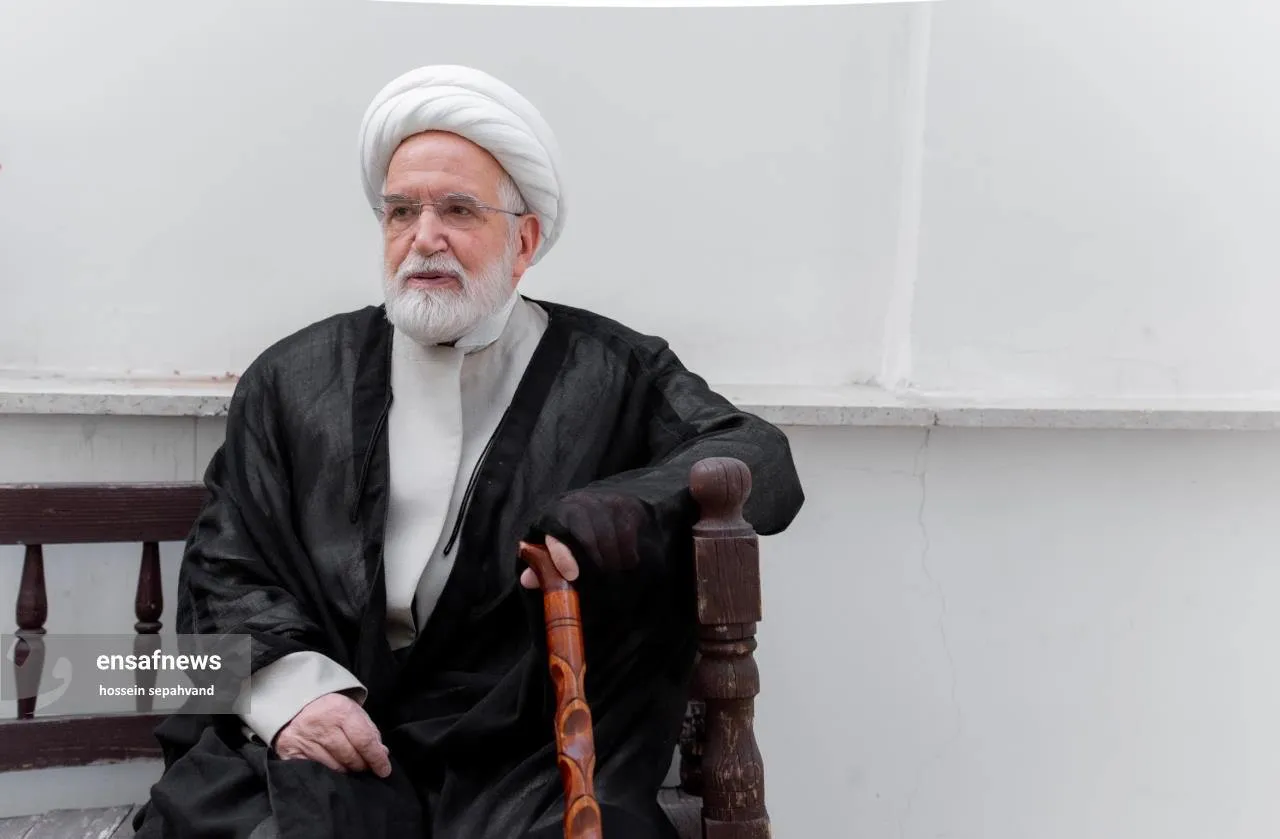
Background and Formation
Mehdi Karroubi was born in 1937 in the city of Aligudarz, in Iran’s Lorestan province, into a devout family known for its religious commitment and social activism.
His father, Sheikh Ahmad Karroubi, was a prominent cleric, which led the young Karroubi to pursue early studies in the seminary.
At the age of sixteen, he moved to Qom, where he studied under leading scholars, including Imam Khomeini himself and Ayatollah Hossein-Ali Montazeri.
In the mid-1960s, Karroubi enrolled in the Faculty of Theology at the University of Tehran to study Islamic jurisprudence and law. However, repeated arrests by the Shah’s SAVAK intelligence service disrupted his studies.
In 1962, he married Fatemeh Karroubi, who later became a member of the Islamic Consultative Assembly. The couple had four children: Mohammad Hossein, Mohammad Taqi, Ali, and Yasser.
From his youth, Karroubi was active in anti-Shah activities, leading to nine arrests and exiles between 1963 and 1978.
After the so-called Islamic Revolution of 1979, he entered parliament as a representative for his hometown of Aligudarz and rose to become speaker of the Majlis for two terms, establishing himself as one of Iran’s leading parliamentary figures.
He also chaired the Imam Khomeini Relief Committee and participated in the Council for Reviewing the Constitution, further cementing his presence in state institutions.
Yet his proximity to the system did not prevent him from adopting a reformist and oppositional line in the 1990s. He resigned from his official positions in 2005 and founded the National Trust Party, which became one of Iran’s major reformist formations.
Karroubi ran for the presidency in 2005 and 2009. In the latter election, he was one of the three main figures in the so-called “Green Movement,” alongside Mir Hossein Mousavi and Zahra Rahnavard, protesting the reelection of Mahmoud Ahmadinejad.
Following that election, Karroubi was placed under house arrest in 2011 without trial, a restriction that lasted more than 14 years. During this period, he continued to issue statements criticizing the regime and calling for sweeping reforms.
In September 2022, Karroubi published a letter condemning the execution of Mohsen Shekari, a 23-year-old Iranian who became the first protester executed in the wake of the 2022 demonstrations sparked by the death of Kurdish woman Mahsa Amini while in the custody of the “morality police.”
Karroubi warned that the execution was a prelude to a series of judicial killings designed to intimidate the public. He accused Supreme Leader Ali Khamenei of regarding every protest as an “external conspiracy” to justify repression.
Shekari had been arrested in Tehran during the first wave of protests and was accused by authorities of “blocking a public road” and “injuring a Basij member with a knife.”
Following a rapid and secretive trial before the Revolutionary Court, he was convicted of “moharebeh” (waging war against God), a broad charge often used in Iran to punish political opponents and demonstrators.
Shekari was executed by hanging on December 8, 2022, sparking widespread outrage in Iran and abroad. International human rights organizations, including Amnesty International, described the killing as a deliberate act intended to terrorize protesters and suppress the popular movement.
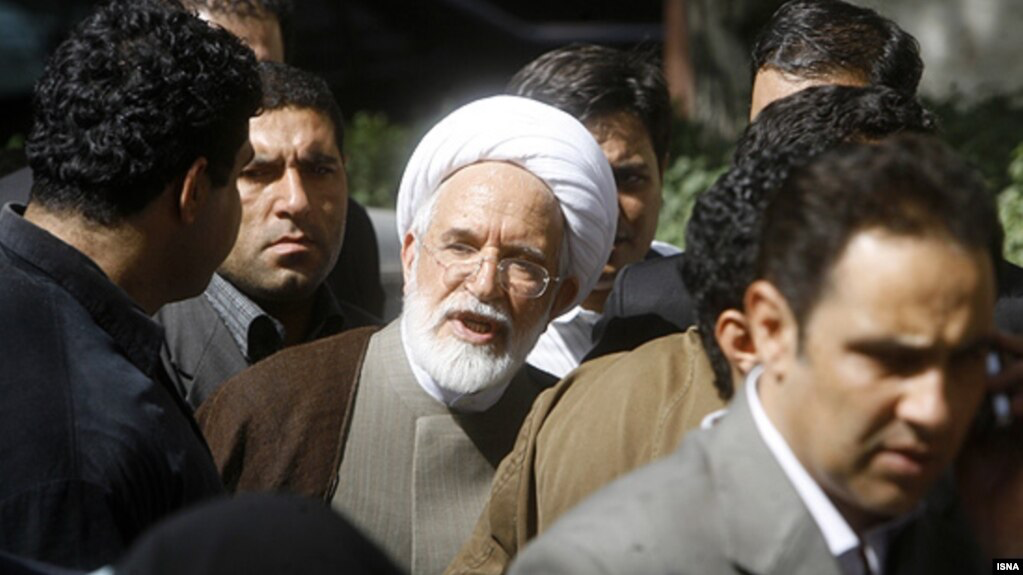
A Resolute Politician
Mehdi Karroubi breathed a sigh of relief in March 2025, when authorities announced the end of his house arrest. His son, Hossein Karroubi, said at the time that the decision came “by order of the head of the judiciary,” although security forces continued to surround the family home for “precautionary” reasons.
Karroubi’s return to the political scene came at a delicate moment for Iran, amid escalating Western sanctions and growing public discontent over worsening economic conditions.
Within weeks, he resumed his criticism of the ruling establishment, asserting that the prevailing approach had “driven Iran to the depths of the abyss.”
In August 2025, he said, “For Iran to survive, the rulers must return to the people and lay the groundwork for structural reforms based on the will of the nation.”
Despite years of imprisonment, house arrest, and media marginalization, Karroubi has not softened his reformist stance. If anything, his resolve has strengthened with time.
He continues to insist that the country’s salvation lies in “popular participation and political transparency.”
To his supporters, Karroubi represents one of the last figures from the first generation of revolutionaries who tried to reform the system from within.
His critics, however, describe him as “a rigid politician clinging to past glories, determined to revive a lost battle.”
Yet between these views, Karroubi remains a symbol of an Iranian who has never tired of dissent. He resisted repression under the Shah, faced political sidelining under the republic, and even after turning eighty continues to repeat his oft-quoted maxim: “Reform is not a choice. It is the only path to save a nation corroding from within.”
After his release, the news site Ensaf News published a statement from Karroubi in April 2025 highlighting the continued detention of Mir Hossein Mousavi.
He said, “Although I consider freedom my natural right, I would have preferred that we leave detention together, just as we entered on the same day.”
“For me, freedom will only have meaning when the authoritarian impulses represented by the collective thirst for power and wealth are gone from this country forever, and we witness in practice the sovereignty of the people over their destiny, and the true meaning of the people’s vote in all matters,” he added.
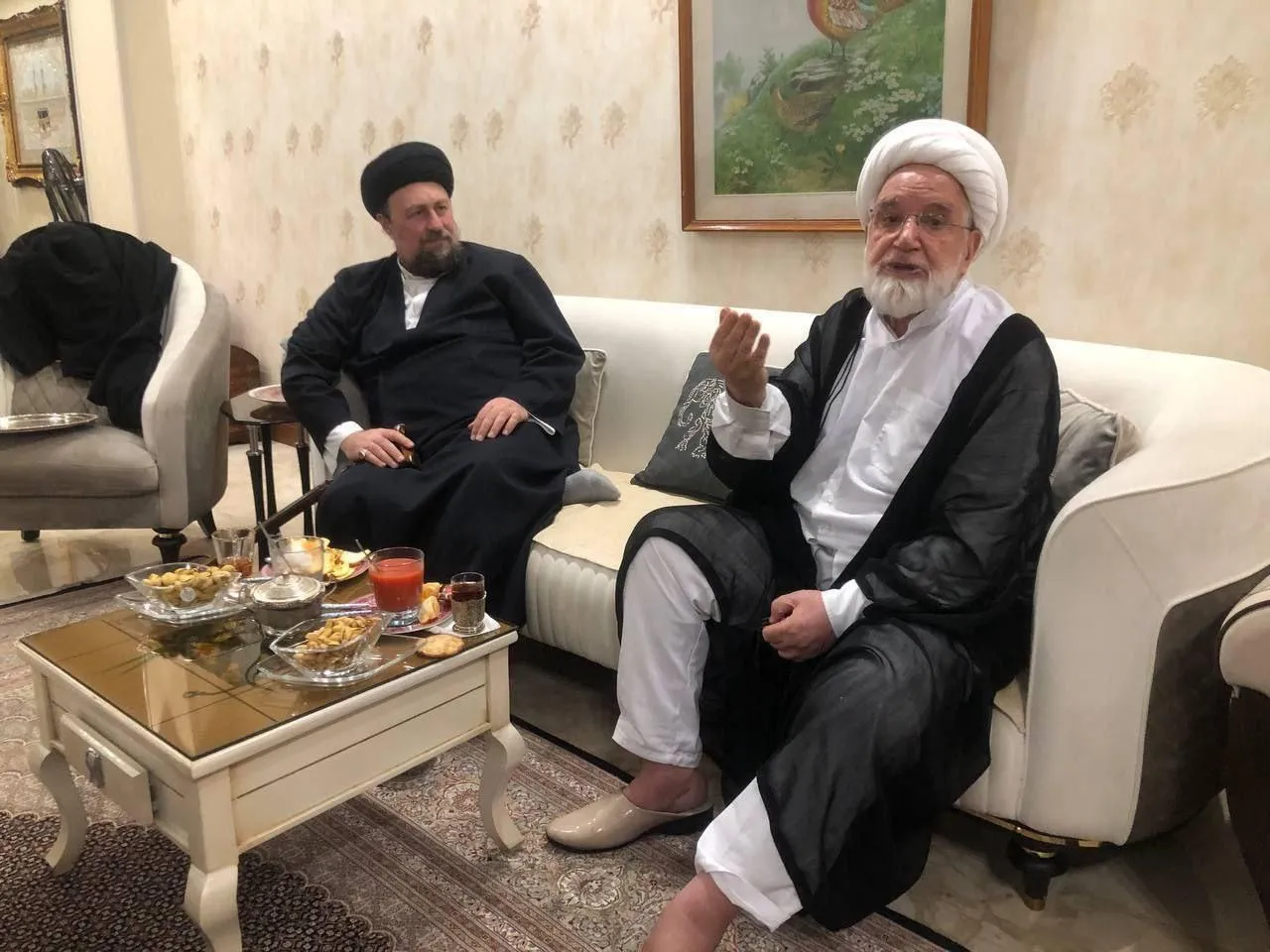
Steadfast in his Positions
In his first political appearance since the end of his house arrest, Mehdi Karroubi continued his sharp critique of the authorities, directing his attacks at the regime’s domestic and foreign policies.
During a meeting with members of the “Organization of Islamic Revolution Mojahedin,” one of Iran’s most prominent reformist figures spoke with anger about the “tragic state the country has reached,” holding the leadership responsible for what he described as “the collapse of state administration and the disintegration of public trust.”
Karroubi said the Iranian people “did not rise up in revolution to become servants of clerics and officials, nor to live in abject poverty as a result of misguided policies and hostile rhetoric toward the world.” He pointed to the consequences of those policies, citing “gas shortages in winter, electricity and water cuts in summer, and the erosion of the middle class, which was the backbone of society.”
In what was described as his boldest tone since his release, Karroubi stressed that lifting the threat of sanctions and war “will only be achieved through direct negotiations with the United States,” calling it “a national necessity that cannot be avoided.”
The reformist leader added, “Despite this tragic situation, there remains a stubborn insistence on continuing the old approach to domestic and foreign policy,” asserting that “Iran’s current crisis is not accidental, but the result of mistaken and reckless policies that have pushed the country to the brink of collapse.”
A new media campaign quickly emerged against Karroubi after he announced his intention to continue working for the release of all political prisoners, emphasized the need to free his ally Mir Hossein Mousavi and his wife Zahra Rahnavard, and indirectly accused the authorities of “authoritarianism and greed for wealth.”
Kayhan newspaper, close to Supreme Leader Ali Khamenei, launched a sharp attack on him in its April 6, 2025, edition, calling Karroubi “naive” and insisting that leaders of the “Green Movement,” if subjected to fair trials, would be convicted of “severe punishments” for what the paper described as “major treason” and “a sedition worse than murder.”
The escalation followed Karroubi’s statement that the unconditional release of political prisoners, particularly women, is a “legitimate and national demand,” pledging to continue his efforts despite all pressures.
Meanwhile, Khorasan newspaper, close to Parliament Speaker Mohammad-Bagher Ghalibaf, also attacked the statement, calling it “an attempt to create a new crisis for the country” and adding that Karroubi “still lives in the illusions of the past” and is “trying to recycle a discourse that has long been outdated.”
While conservative media framed these remarks as a new political provocation, observers said Karroubi appears to be attempting to reclaim reformist initiative, solidifying his image as a dissenting voice who, despite age and restrictions, still dares to hold the authorities accountable on the most sensitive issues.
At a mid-September 2025 internal meeting of the National Trust Party, Karroubi reminded members of the revolution’s roots, seeking to invoke its original spirit, which he believes has strayed from its path.
Speaking to the party’s central council, he said, “Before the revolution, many analysts said that the fall of the Pahlavi regime would lead to chaos and division, but the people supported the revolution and guided the country through turmoil to the shore of safety.”
In a tone blending pride and bitterness, he added,“The people have preserved this revolution with their blood and the blood of their children. This revolution is very great. Under the previous regime, no one believed the people, relying on Islam, could achieve victory for the revolution.”
Observers in Tehran interpreted Karroubi’s words, which seemed a symbolic invocation of revolutionary memory, as a reminder to the regime of its popular roots and a subtle message to the leadership that the revolution was never the monopoly of a religious institution or political elite, but, as he has always insisted, “a people’s project, not a project of power.”
Sources
- Who is Mehdi Karroubi? Why was the “reformist cleric” under house arrest for 15 years? [Arabic]
- Iran protests: First death sentence carried out for a demonstrator involved in anti-government protests [Arabic]
- Mehdi Karroubi: Khamenei blames the protests on enemies as a pretext for repression [Arabic]
- Iranian opposition figure Mehdi Karroubi released from house arrest [Arabic]


